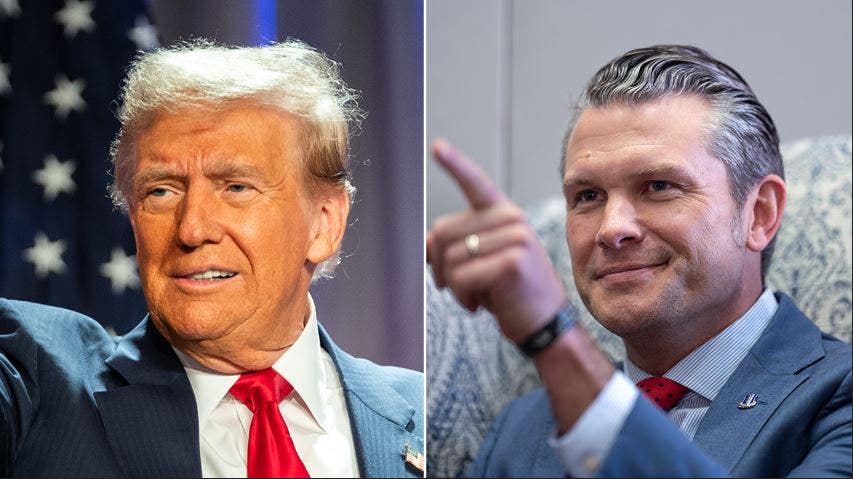Pete Hegseth, President-elect Trump’s nominee for Secretary of Defense, faced a challenging week as allegations of sexual misconduct and excessive drinking surfaced, casting a shadow over his confirmation prospects. Hegseth, a former National Guard officer and a prominent figure on Fox News, embarked on a series of meetings with Republican senators, aiming to garner support and dispel concerns surrounding his nomination. While Hegseth vehemently denied the allegations, the controversy prompted some senators to withhold their commitment to vote for him, highlighting the uphill battle he faced in securing confirmation. President-elect Trump, however, remained steadfast in his support for Hegseth, publicly praising his nominee’s intellect, military background, and unwavering focus on defense matters.
Trump’s unwavering endorsement of Hegseth underscored the president-elect’s confidence in his nominee’s qualifications and potential to lead the Department of Defense. He highlighted Hegseth’s academic credentials, having graduated from both Princeton and Harvard, and emphasized his deep understanding and passion for military affairs. Trump’s public pronouncements of support, delivered through interviews and social media posts, served as a powerful signal to Republican senators, urging them to rally behind his choice and ensure Hegseth’s confirmation. Despite the surfacing of allegations, Trump maintained that Hegseth possessed the necessary qualities to excel as Secretary of Defense, portraying him as a “winner” with exceptional leadership capabilities.
While Trump expressed optimism about Hegseth’s confirmation prospects, acknowledging encouraging calls from senators who described the nominee as “fantastic,” the path to confirmation remained uncertain. Senator Joni Ernst, a key Republican voice on defense matters, remained noncommittal, engaging in “substantive conversations” with Hegseth without offering a definitive endorsement. The senator’s cautious approach reflected the delicate balance she faced between supporting the president-elect’s nominee and addressing the serious allegations raised against him. Ernst’s emphasis on a “fair hearing” signaled her commitment to a thorough vetting process, allowing Hegseth the opportunity to address the concerns and present his vision for the Department of Defense.
Hegseth’s engagement with Senator Ernst and other Republican senators represented a crucial step in his quest for confirmation. These meetings provided a platform for Hegseth to directly address the allegations against him, showcase his qualifications, and articulate his vision for leading the military. The outcome of these interactions would significantly influence the senators’ voting decisions and ultimately determine the fate of Hegseth’s nomination. The nominee’s focus remained on demonstrating his commitment to serving the nation’s defense interests and reassuring senators of his suitability for the critical role of Secretary of Defense.
Vice President-elect JD Vance emerged as a staunch defender of Hegseth’s nomination, asserting the incoming administration’s full support and rejecting the notion of a “sham hearing” orchestrated by the media. Vance’s forceful pronouncements underscored the administration’s determination to see Hegseth confirmed, emphasizing the importance of allowing the Senate nomination process to unfold without undue influence from external pressures. He urged senators to consider Hegseth’s qualifications and experience, dismissing the allegations as attempts to derail a qualified nominee. Vance’s unwavering support mirrored the president-elect’s confidence in Hegseth and signaled the administration’s commitment to fighting for his confirmation.
The controversy surrounding Hegseth’s nomination underscored the complex interplay of political considerations, personal allegations, and the imperative to ensure qualified leadership within the Department of Defense. The outcome of the confirmation process would not only shape the future of the department but also serve as a litmus test of the president-elect’s influence over the Senate and his ability to navigate politically charged nominations. As Hegseth continued his outreach to senators, the nation watched closely, awaiting the Senate’s decision on whether to confirm or reject the embattled nominee. The stakes were high, with the future of national security leadership hanging in the balance.

